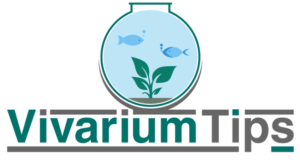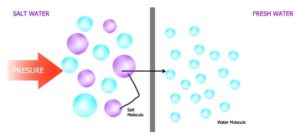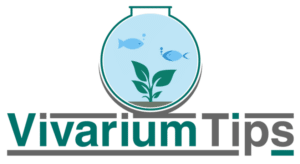Let’s say I’m out of distilled water and I have no way to obtain it – what can I use instead of distilled water?
This problem can occur when you least expect it.
The answer is simple – you can use purified water, reverse osmosis, or even rainwater. It sounds simple, but there are people still trying to understand how to obtain this.
And there’s more for you to know than just those simple answers.
In this article, “What Can I Use Instead of Distilled Water For My Tank” will take you a little further into helping you collect water.
The information might be useful for:
- Various types of vivariums
- Terrarium owners
- Paludarium owners
- Aquarium owners
- Jarrarium owners
- Microgreens
- and more+
Whether it’s for your plants or animals, learning these facts after reading to the end of this article will end up saving your day.
Here are the methods:
Purified Water Bottles

If you’re out of distilled water, one of the first methods I’m going to introduce to you is using purified water bottles. Yes, drinkable water bottles!
Advice: When you’re using water bottles bought from the market, you have to ensure that the water bottle isn’t mineral water.
How do I know if it’s not mineral water?
One of the ways to figure this out is by looking at the labels and read the ingredients on the water bottle. You can see what’s included or not.
Some water bottles will say “purified water” but always double-check the label because that’s where it’s most reliable.
But again – if you’re placed in a bad situation and cannot find any purified water, then you should definitely skip to the next section.
How do I test for minerals in water?
- You can test for minerals in water by using a test strip, which can be purchased online or at a local store. The test strip works when you place it inside the water and then see the color changes on the strip. The color will help you determine whether it has minerals.
Reverse Osmosis
If the first method doesn’t work for you, you should definitely take a look at reverse osmosis.
How does reverse osmosis work?
Reverse osmosis works by using water with salts that are already dissolved and turning it into purified freshwater. The system uses a high-pressure pump that boosts the pressure on the salt side of the reverse osmosis.
This leaves behind the salt that you don’t want. Usually, it’s 95% to 99%.
This is a great alternative and method to have purified water for your ecosystem tank.
What can I use for this?
There are numerous products you can use for reverse osmosis. You can check it all out by clicking here. While the price can be hefty, it will provide you water in the long term.
Here are some known brands of reverse osmosis system:
- APEC Water Systems ROES-50
- APEC Water Systems ROES-PH75
- FS-TFC Reverse Osmosis
While I have one myself, I have to admit that it really does come in handy. If you pay for a system now, you can be sure to have a long-lasting supply of freshwater.
My opinion: I believe having a reverse osmosis system is perfect especially if you’re an owner of any type of vivariums. Instead of paying for distilled water, you will have water right at the comfort of your home and these systems can last for a long time.
Rain Water

This method is the classic method. You can use rainwater for your vivarium tank. If where you live rains a lot, then rainwater is going to save your day whenever you’re out of distilled water.
Maybe you won’t even need distilled water if your city rains continuously.
There are so many advantages to rainwater! You can use it to water your plants, use a bowl and collect them, and take all the advantages you want with this.
If you didn’t know this yet, watering your plants with rainwater can drastically improve the overall health of your plants.
Did you know? 💡 There’s a reason why plants appear healthier after a heavy day of rain. This is because the air is filled with nitrogen which helps the root of plants at an impressive rate.
Nature taking care of nature is the way to go!
Does rainwater have nutrients for plants?
- They have what every living animal/plant needs – nitrate. If you didn’t know, nitrate if made up of oxygen and nitrogen, which can help maximize the health of your plants.
Will heavy rain damage plants?
- Definitely! If your plant is small and fragile, heaving rain and do damage to your plants. If it’s a thunderstorm, it can be even worst.
While this is not a rain story, I remember using the water sprayer and watered my plants too hard. It did cause damage to the roots and I regret it.
Important Advice

If you really can’t get water and have no other options left. Then the last solution for you is to water your plants with whatever water you have. You don’t want to risk your plants dying just because you can’t find distilled water.
You shouldn’t turn this into a habit. You’re still going to have to try to find freshwater as soon as possible.
Using the wrong water can lead to:
- Rotting plants.
- Smelly tank.
- Problems you’re never going to expect.
I’ve written an article about this and reading this will make you realize how terrible it’ll be if you continue using the wrong water.
From VivariumTips,
Overall, these are the three powerful methods I believe could help you when you’re out of distilled water. The one method that I would recommend the most is the reverse osmosis system.
- Water Bottle – This can be costly, but it’s definitely a lifesaver.
- Reverse Osmosis – It’ll cost a lot in the beginning, but will save money in the long run.
- Rain Water – Rainwater will improve your plants’ health by a lot.
Being an owner of one of these has been saving me from ordering water from the stores. They can last a lifetime.
If you enjoyed this article, then you might also enjoy:
The best way to support this blog and continue getting free information is if you share any articles on this website with a friend!
Don’t forget to comment, leave your feedback, and ask any questions if you have! 🙂


